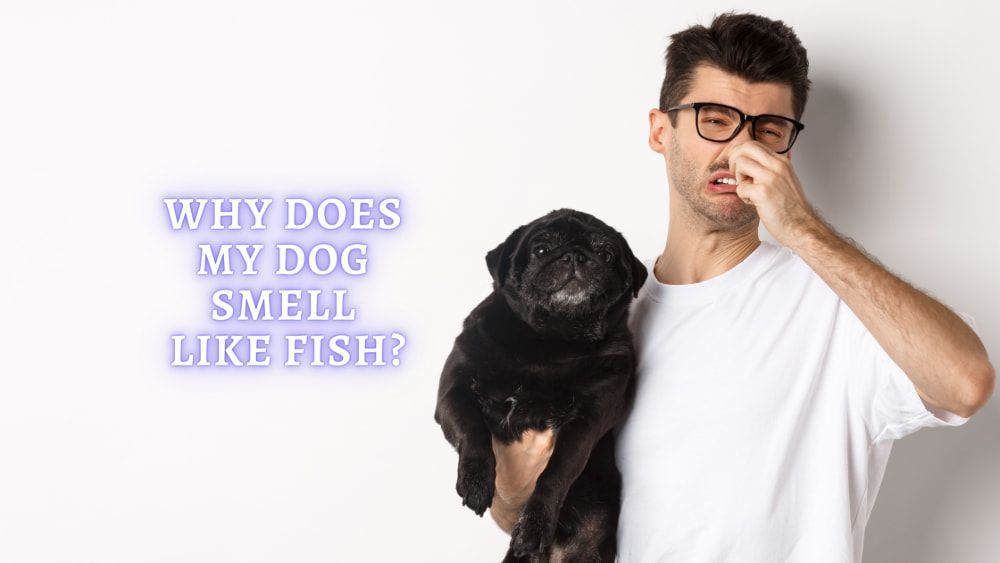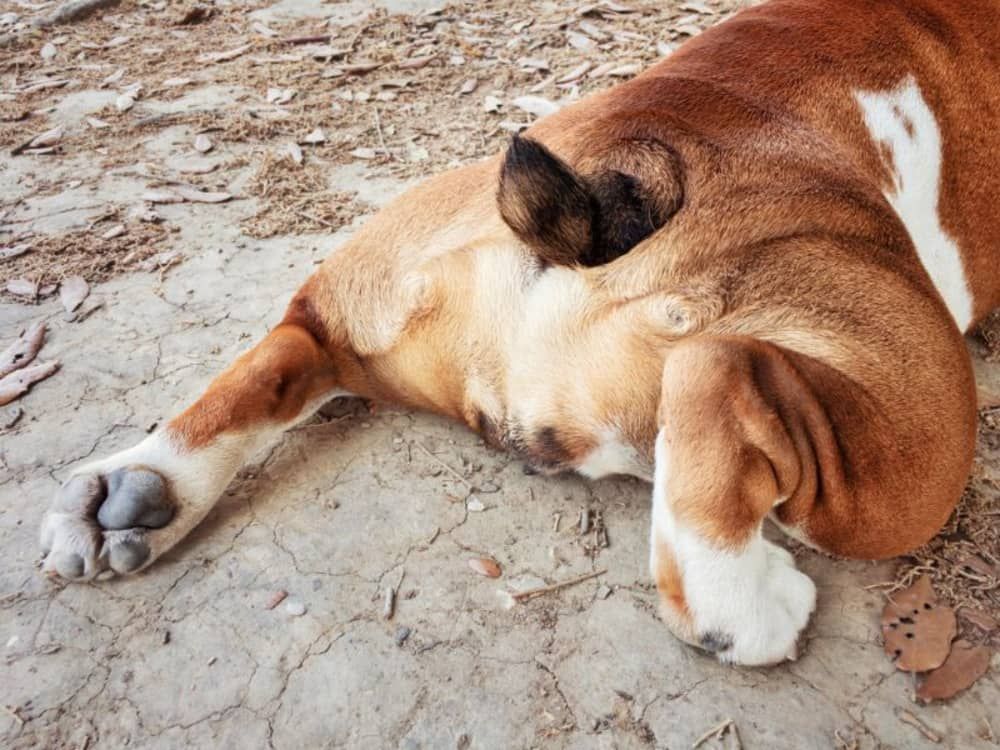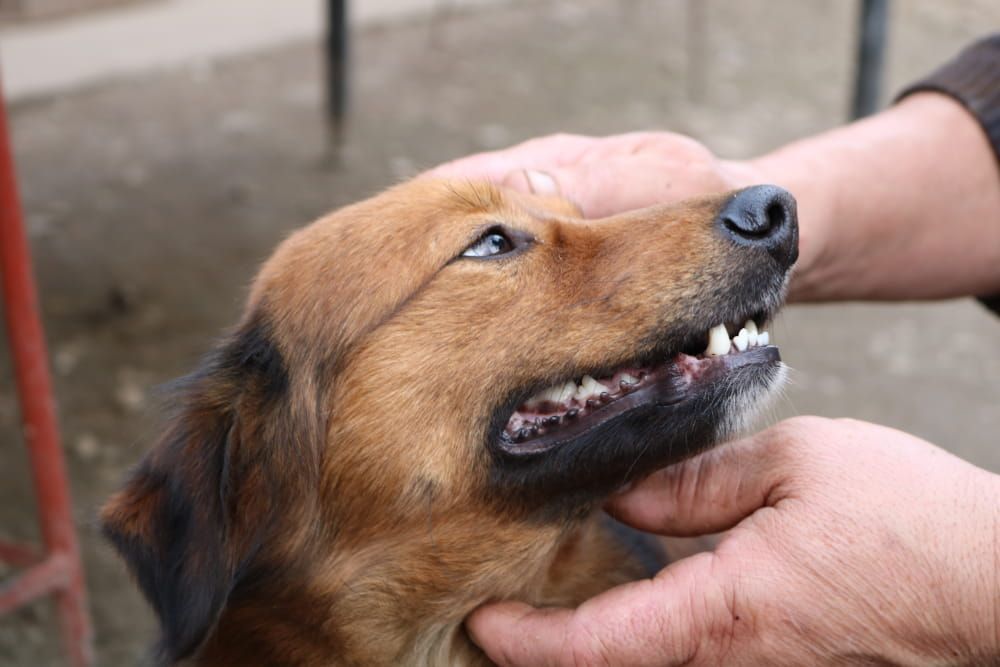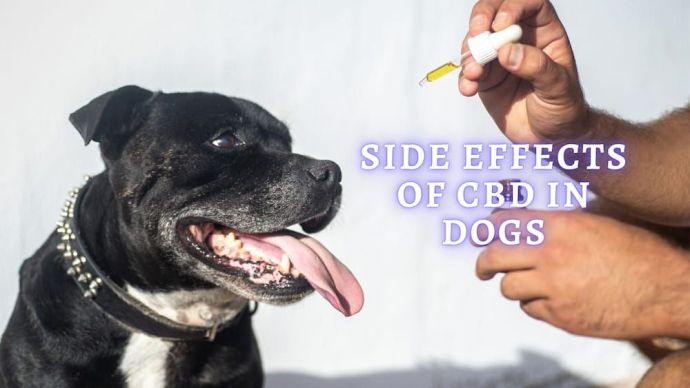Dog Smells Like Fish: Why Does My Dog Smell Like Fish?
Written by:
Author: Carol Young
Carol has worked in specialty, emergency, mixed animal and general veterinary practices, and enjoys all aspects of veterinary medicine. Her special areas of interest include anesthesia, critical care, emergency, dentistry, internal medicine and small animal nutrition.
View all 62 articlesLearn about our editorial process and veterinary review board.
Viewed: 17510
Updated on: 03/23/2022
As a dog owner, you may have noticed that sometimes your best friend doesn’t smell the greatest, especially after playing in the mud or rolling in something, and that he may on occasion give off a fishy smell. We all love cuddles and kisses from our canine companions, but getting a big wet kiss that smells like tuna or sardines is more than unpleasant and makes most owners recoil and gag. There can be many reasons why your pet may smell fishy and give off fishy breath, and some reasons are listed below.
READ MORE: Best Online Dog Grooming Courses
Common Causes of Fishy Smells in Dogs
1. Anal Glands
The most common cause of dog fish breath and odors are secretions from the anal glands. Anal glands are two glands located at the four-o-clock and eight-o-clock positions just inside the anus, and it functions as a sort of calling-card for carnivores where pets mark their territory and let other dogs know where they’ve been. Normally, a dog’s anal glands will naturally express themselves each time a pet defecates, but sometimes, anal glands can leak or become impacted. Anal gland secretions have a distinct smell that many people describe as fishy, and if your dog smells like fish, chances are there may be something going on with her anal glands, and there are several conditions that can contribute to anal gland smells and issues. [1]
Anal Sac Disease
Anal sack disease is a condition with the anal glands and can be quite common among smaller breeds and giant breeds. Normally, your pet’s anal glands are naturally expressed in small amounts each time he defecates, however, sometimes the anal sacs are not emptied of fluid, and the fluid can become sticky and dry and cause impaction, infection, or abscess.[2]
Anal gland disease is caused by three main conditions:
- Impacted Anal Glands. Impacted anal sacs cannot express properly, which can be very irritating and painful for your dog. Impacted anal glands should be treated by your veterinarian, and if the anal sacs feel hard to the touch and produce a pasty, thick, brown goo, chances are they were on their way to becoming impacted. It is important to have your veterinarian express your pet’s anal glands regularly if he has issues expressing them normally.
- Anal Gland Infections and Abscesses. Anal glands can also get infected, and in this case, they can also become abscessed if left untreated and unexpressed. Infected anal sacs can quickly become abscessed, where the anal sacs can become very painful, and the area around the rectum can become red and swollen. If left untreated by a veterinarian, these abscesses can rupture through the skin, which is very painful for your dog, can cause a fever, and will need immediate veterinary attention. In severe cases, anal gland abscesses need surgery, but antibiotics and pain medications are usually sufficient treatment in milder cases.
- Anal Sac Tumors. Anal gland tumors can either be benign or cancerous growth that blocks the anal glands, inhibiting your pet’s ability to express his anal glands normally. In most cases, anal sacs with tumors do express at all, creating irritation and pain in the area, if you suspect that your dog has an anal gland tumor, contact your veterinarian. Your veterinarian may wish to take a biopsy and perform other diagnostic to get to the root of the problem.
Symptoms Of Anal Sac Disease
Anal sac disease symptoms include that “fishy” smell, but also include other signs. Dogs with irritated or full anal sacs may make a habit of scooting across the rug, bite or licking at the rectum, or strain and vocalize while trying to defecate. You may notice a hard lump near the rectum, or notice blood, or purulent discharge pus in your pet’s stool. If you notice any of these signs or symptoms, call your veterinarian and schedule an examination. Also, dogs who are prone to anal sac disease are obese, have allergies, skin infections, endocrine diseases, or even mites.
Treatments For Anal Sac Disease
- Anal gland expression. Anal sac disease must be treated by a veterinarian and first involves an examination of the rectum and an anal gland expression. When it comes to having the anal sacs expressed, this should be done by a veterinary professional as the glands can be ruptured if not expressed properly.
- Higher fiber diet. After the expression, your veterinarian may recommend a higher fiber diet or adding vegetables to regular meals to help him express his anal sacs normally.
- Antibiotics. Infected or abscessed anal glands are wiped with an antiseptic and most veterinarians will prescribe an oral antibiotic. Warm, wet compresses may also be recommended in cases of abscesses to help them drain. In more complex cases, the veterinarian may also infuse a topical antibiotic into the anal glands.
- Surgery. In severe and chronic cases, or in cases where there is a tumor, your veterinarian may recommend removing one or both anal glands. While this procedure has potential complications, such as incontinence, anal gland surgeries are typically successful and can offer your dog greater comfort down the road.
Natural Remedies For Anal Sac Disease
There are several things related to diet that can help a dog with anal gland issues:
- Fiber. Adding fiber to your dog’s diet can help increase water retention in the colon, as well as help firm up stools. Former stools often help pets naturally express the anal glands. Popular items include higher-fiber formulated diets and canned pumpkin and green beans, but just make sure these veggies do not have any added salt or sugar.
- Increase moisture. Another solution is to add more water to the diet. Adding a little wet food to kibble can help, as well as encourage drinking. You can also invest in a pet drinking fountain to encourage hydration.
- Probiotics. Canine-formulated probiotics can also help encourage your dog’s anal glands to empty on their own, and your veterinarian can make several recommendations.
Preventing Anal Sac Disease
While anal sac disease is not always preventable, there are a few things you can do at home:
- Make sure your pet has enough fiber in his diet.
- Monitor your dog’s stools. They should be well-formed, and not too loose or too dry.
- Make sure your dog gets enough exercise. Anal glands issues tend to occur in overweight dogs, and dogs that get regular exercise are more apt to have healthier anal glands.
- Make sure your dog gets plenty of fresh water.
READ MORE: Best Grain Included Dog Food
2. Bad Breath
Bad breath can also smell “fishy,” and make owners want to gag after a big wet kiss.
Causes:
Smelly, fish breath can be caused by a buildup of bacteria in your dog’s mouth and the development of periodontal disease.[6] If your dog has halitosis, he may need a professional dental cleaning by your veterinarian.
Symptoms:
Bad breath can come in all sorts of smells and can be “fishy,” or have an unpleasant bacterial scent.
Treatment:
If your dog’s teeth are relatively clean and free of plaque or tartar, he may just need a tooth-brushing or dental chews. In more serious cases or tartar-build-up, your dog may require professional cleaning.
Natural remedies.
There are several types of natural remedies that your can make at home; however, it is important to consult your veterinarian first, as some of these remedies may contain spices and ingredients that can harm your dog.
Prevention:
Brushing your dog’s teeth with veterinary-approved toothpaste is the best prevention for bad breath since most cases of bad breath in dogs are caused by periodontal disease and bacteria in the mouth. Other options include dental bones, bully sticks, and dental chews.
RELATED ARTICLE: Best Dog Toothpaste
3. My Female Dog Smells “Fishy”
Sometimes unspayed female dogs can give off a “fishy” aroma, and you may notice it coming from the area of the vagina.
Causes:
There can be several causes for the fishy smell in your gal, including vaginitis [3] or a urinary tract infection [4](UTI). These issues are caused by a buildup of yeast and bacteria in both the bladder and vaginal space and require a visit to the veterinarian. Another possible cause is an infection of the uterus, called a “pyometra.” This is a medical emergency, so consult your vet immediately if you notice a fishy odor and pus-like vaginal discharge coming from your female dog.
Symptoms:
A UTI or vaginitis symptoms include frequent attempts at urination, blood in the urine, pain, and purulent discharge from the vagina. Your dog may also feel lethargic, lack an appetite, and have a fever.
Treatment:
Vaginitis and UTIs should be evaluated by a veterinarian as they can make your dog very ill if the infection is untreated. In most cases, the veterinarian will conduct a culture or urine analysis and prescribe oral antibiotics.
Natural remedies:
Ensuring that your dog has a healthy diet, drinks plenty of water, and has regular check-ups with your veterinarian are crucial. There is some evidence that cranberry supplements can be useful in the prevention of UTIs, but the results are not conclusive.
Prevention:
UTIs can be prevented with proper diet, exercise, good veterinary care, and vaginitis and pyometras can be avoided with a spay procedure.
4. Smelly Skin Diseases In Dogs
Sometimes dogs who suffer from allergies or skin issues [5] can give off an unpleasant odor, and most dogs tend to have stinky odors around their feet, ears, and hind ends.
Causes:
The glands around the feet, ears, and rectum produce oils and provide a good environment for yeast and bacteria, giving your dog. If your dog has skin allergies, these allergies can cause secondary bacterial infections, contributing to smelly skin.
Symptoms:
Dogs with skin allergies tend to scratch at their ears, chew at their paws, and are generally itchy. They may also tend to lick at areas such as the paws compulsively.
Treatment:
Contact your veterinarian if your dog has allergies and is prone to yeast infections or secondary bacterial infections. Often antibiotics, antifungals, and medicated shampoos are recommended.
Natural remedies:
Natural products such as oatmeal baths, coconut oil massages, hypoallergenic diets, and plain yogurt can help dogs who suffer from skin allergies. However, before trying these home remedies, first consult your veterinarian.
Prevention:
Preventing skin allergies in dogs can be a challenge since most skin allergies are caused by diet. Consult with your veterinarian regarding trying a hypoallergenic diet.
RELATED ARTICLE: Best Dog Food for Skin Allergies
5. Gastrointestinal Issues
Dogs with food allergies or intolerances can burp excessively and have trouble digesting food, leading to fishy, smelly breath. Acid reflux also called gastroesophageal reflux or GERD, may also cause smelly breath.
Causes:
Food allergies, GERD, or a “megaesophagus” can cause smelly breath. Megaesophagus [7] is a neurological condition in which the esophagus is dilated, and food is not readily emptied into the stomach, causing regurgitation.
Symptoms:
Symptoms include regurgitation, drooling, lip licking, or gulping air while eating.
READ MORE: Do Dogs Have Lips?
Treatment:
Antacid medications are given as directed by a veterinarian, often help control symptoms, but in the case of megaesophagus, surgery or elevated feeding may be recommended.
Natural remedies:
Natural remedies for reflux or GERD include adding ginger, or probiotics to the diet. It’s always best to consult your veterinarian before trying natural remedies.
Prevention:
Preventing GI issues entails ensuring that your dog has a well-balanced diet, but this depends on the cause and diagnosis of the GI issues. For example, for dogs with GERD or reflux, antacids may be recommended as well as frequent, small meals. Additionally, it’s important to feed your dog a high-quality complete and balanced diet to keep his skin and coat healthy and his gut-health in check.
READ MORE: Best Dog Food for Sensitive Stomach
6. What If my Dog’s Pee Smells Like Fish?
As mentioned above, a urinary tract infection (UTI) can give your dog’s urine a fishy, or unpleasant odor. Bladder or kidney stones, prostate disorders in males, and bladder cancers may all lead to foul-smelling urine.
If you notice that your dog’s pee smells abnormally pungent, you should take her to see your veterinarian.
Causes:
UTIs are caused by a buildup of bacteria entering the urethral opening and can be treated with antibiotics, so make sure you give your vet a call if you suspect this is the issue. UTIs can become more serious (and painful) if left untreated. Prostate problems and bladder cancers can also cause foul-smelling urine.
Symptoms:
Symptoms of UTIs include trying to urinate frequently with little urine production and blood in the urine. Bladder and prostate cancer symptoms are similar, and if you suspect that your dog has any of these issues, contact your veterinarian immediately.
Treatment:
If your veterinarian diagnoses a UTI, antibiotics will be prescribed to treat the infection, but surgery may be recommended if the cause is a bladder tumor or prostate cancer.
Natural remedies:
As mentioned above, there is some evidence that cranberry supplements can help prevent UTIs, but it’s essential that your dog has access to fresh water and is on a healthy diet.
Prevention:
UTIs can be prevented by spaying and neutering. However, altered dogs can get urinary tract infections. Prostate issues can be prevented by neutering; however, bladder cancer can happen in almost any dog. The best prevention is ensuring that your dog is on a healthy diet and receives regular veterinary examinations.
READ MORE: Kidney Care for Dogs — Vet Advice
FAQs
Why does my dog smell like period blood?
Sometimes intact female dogs exude a smell while they are in heat, and this smell can include odors from vaginal discharge and blood.
Why do female dogs release a fishy smell?
Intact female dogs who are in heat, or have vaginal discharge can smell a bit fishy, but these odors will usually resolve once her heat is over.
How do you know if your dog’s glands are full?
The best way to tell if your dog has full anal glands is if he scoots his rear across the carpet or the floor. Excess licking and a fishy smell are also tell-tale signs.
Can I express my dog’s glands myself?
Although owners can express anal glands at home if properly trained, it is not recommended. For a proper anal gland expression, consult your veterinarian or an experienced groomer. If you try to express the glands at home, there is the possibility of causing a rupture of the glands, which can be very painful and may require surgery to repair.
Article Sources:
- Burke, Anna. “Why Your Dog Smells Like Fish.” American Kennel Club, 15 Jan. 2020, akc.org/expert-advice/health/real-reason-dog-smells-like-fish/.
- Hunter, Tammy. “Anal Sac Disease in Dogs.” VCA Hospitals, vcahospitals.com/know-your-pet/anal-sac-disease-in-dogs.
- “Vaginitis in Dogs: A Simple Approach to a Complex Condition.” DVM 360, dvm360.com/view/vaginitis-dogs-simple-approach-complex-condition.
- Adams, Larry G. “Diagnosing and Managing Recurrent Urinary Tract Infections (Proceedings).” DVM 360, dvm360.com/view/diagnosing-and-managing-recurrent-urinary-tract-infections-proceedings.
- Hall, Melissa. “5 Vile Veterinary Derm Conditions That Get under My Skin-Dvm360.” DVM 360, dvm360.com/view/5-vile-veterinary-derm-conditions-get-under-my-skin.
- Burke, Anna. “How to Get Rid of Stinky Dog Breath — American Kennel Club.” American Kennel Club, 8 May 2020, akc.org/expert-advice/health/get-rid-of-stinky-dog-breath/.
- Brooks, Wendy. “Megaesophagus in Dogs.” Veterinary Partner, veterinarypartner.vin.com/default.aspx?pid=19239&id=4951482.
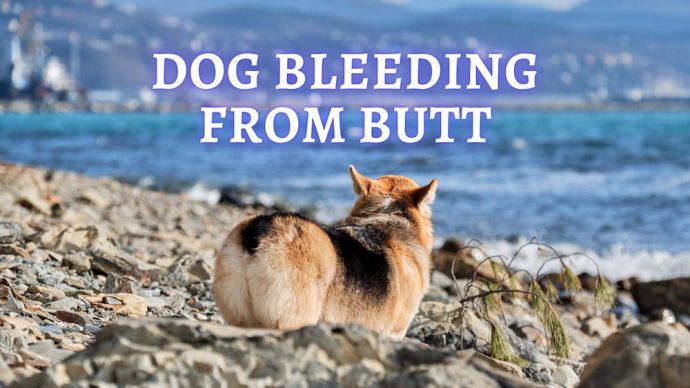 Dog Care Why Is My Dog Bleeding From Its Butt? Causes and treatment of rectal bleeding in the dog
Dog Care Why Is My Dog Bleeding From Its Butt? Causes and treatment of rectal bleeding in the dog - 22076
- 0
 Dog Care Dog Stung By Bee: What To Do If Your Dog Gets Stung By A Bee? (Vet Approved Advice)
Dog Care Dog Stung By Bee: What To Do If Your Dog Gets Stung By A Bee? (Vet Approved Advice) - 94
- 0
 Dog Care Am I Ready to Be a Dog Parent? 7 Things to Consider Before Getting a Puppy
Dog Care Am I Ready to Be a Dog Parent? 7 Things to Consider Before Getting a Puppy - 227
- 0
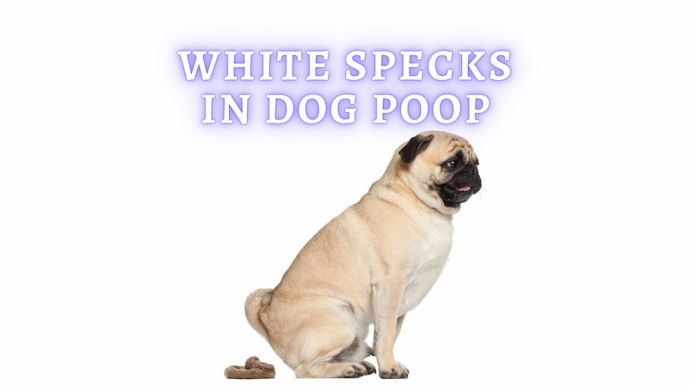 Dog Care White Specks In Dog Poop: What Are The Little White Specks In Dog Poop? (Vet Advice)
Dog Care White Specks In Dog Poop: What Are The Little White Specks In Dog Poop? (Vet Advice) - 659
- 0
 Dog Veterinary Tips Why is my Dog throwing up: Causes and Preventing (Veterinary Advice)
Dog Veterinary Tips Why is my Dog throwing up: Causes and Preventing (Veterinary Advice) - 23424
- 5
 Dog Care Why Is My Dog Bleeding From Its Butt? Causes and treatment of rectal bleeding in the dog
Dog Care Why Is My Dog Bleeding From Its Butt? Causes and treatment of rectal bleeding in the dog - 22076
- 0
 Dog Care My Dog Keeps Scratching His Mouth: Reasons Why Your Dog Scratching Face
Dog Care My Dog Keeps Scratching His Mouth: Reasons Why Your Dog Scratching Face - 17561
- 1









